Electric Spanking Of War Babies

1981
{spoken}
(Continues)
(Continues)
Contributed by Riccardo Venturi 2006/3/6 - 21:40
Albright Monument, Baghdad
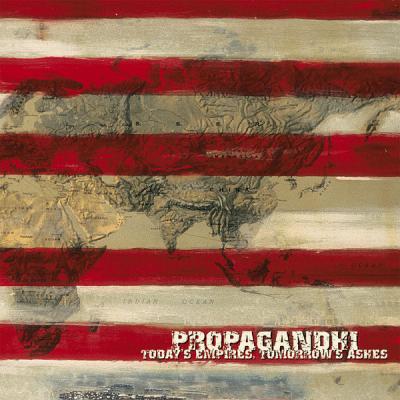
[2000]
From the Album Today's Empires, Tomorrow's Ashes
Dall'album Today's Empires, Tomorrow's Ashes
[Recitative]
[Recitativo]
From the Album Today's Empires, Tomorrow's Ashes
Dall'album Today's Empires, Tomorrow's Ashes
[Recitative]
[Recitativo]
Wadia's best friend's youngest sister was denied a proper burial because for two days they couldn't douse the flames the allied planes had showered on her tiny body. And all the paper trails that lead to all the roads that lead to all these Basras make it seem like we're all just "collateral damage" waiting to be happened in some unforeseen Pentagon budget-drill. Today's Ba'ath regime is just the Red Scare of yesteryear. And I drink myself to sleep because I'm losing faith that any of us will ever amount to anything more than reluctant human subsidies, the moving parts in a death-machine, protesting their complicity, but waiting for somebody else to throw their body on the churning gears. I drink myself to sleep because I'm losing faith that we, here in the Cradle of Affluence can cease this... (Continues)
Contributed by Riccardo Venturi 2006/3/6 - 21:26
2 Minutes To Midnight
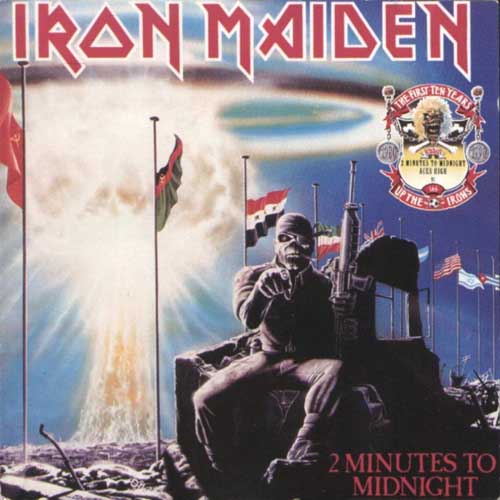
[Adrian Smith/Bruce Dickinson]
"2 Minutes to Midnight" is the tenth single released by Iron Maiden and the second track from their 1984 album Powerslave. The single was released on August 6, 1984 and rose to number 11 in the UK Singles Chart. The song was written by Adrian Smith and Bruce Dickinson.
The song has references to the Doomsday Clock, the symbolic clock used by the Bulletin of the Atomic Scientists. In September 1953 the clock reached 11:58, the closest the clock ever got to midnight. This occurred when the United States and Soviet Union tested H-bombs within nine months of one another. This song is clearly presenting an anti-war view. The first guitar solo is played by Dave Murray followed by a guitar solo played by Adrian Smith.
The opening riff of the song bears a close resemblance to fellow NWOBHM band Venom's earlier song "Welcome to Hell", Saxon's Power and the Glory and... (Continues)
"2 Minutes to Midnight" is the tenth single released by Iron Maiden and the second track from their 1984 album Powerslave. The single was released on August 6, 1984 and rose to number 11 in the UK Singles Chart. The song was written by Adrian Smith and Bruce Dickinson.
The song has references to the Doomsday Clock, the symbolic clock used by the Bulletin of the Atomic Scientists. In September 1953 the clock reached 11:58, the closest the clock ever got to midnight. This occurred when the United States and Soviet Union tested H-bombs within nine months of one another. This song is clearly presenting an anti-war view. The first guitar solo is played by Dave Murray followed by a guitar solo played by Adrian Smith.
The opening riff of the song bears a close resemblance to fellow NWOBHM band Venom's earlier song "Welcome to Hell", Saxon's Power and the Glory and... (Continues)
Kill for gain or shoot to maim
(Continues)
(Continues)
Contributed by Riccardo Venturi 2006/3/6 - 21:17
1917
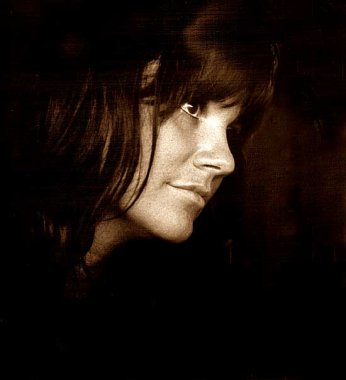
Written by David Olney
Scritta da David Olney
Nell'album "Western Wall: The Tucson Sessions" (1999)
Testo ripreso da questa pagina
Lyrics available at this page
Scritta da David Olney
Nell'album "Western Wall: The Tucson Sessions" (1999)
Testo ripreso da questa pagina
Lyrics available at this page
Prima o poi riusciremo a tradurre tutte le canzoni che abbiamo inserito in questi sei anni, anche ci dovesse volere una vita intera. Perché nascondono dei tesori, come questa bellissima canzone, che Linda Ronstadt (e Emmylou Harris) hanno cantato riprendendo un testo di David Olney. La canzone di una donna, che qualcuno definirebbe una puttana, o nel migliore dei casi una "sgualdrina" o una "donna di malaffare", e di un giovane soldato. La storia di una notte a Parigi, nel 1917.
Non mi si chieda mai qual è la canzone di questo sito che preferisco; non saprei mai rispondere. Ma questa canzone non è soltanto tra le più belle che abbiamo: è tra le più umane e le più amare. Bisognerebbe farla ascoltare ai moralisti di questo tempo, agli ipocriti dei miei stivali, a chi non ha mai avuto un momento d'amore nella sua vita. [RV]
Non mi si chieda mai qual è la canzone di questo sito che preferisco; non saprei mai rispondere. Ma questa canzone non è soltanto tra le più belle che abbiamo: è tra le più umane e le più amare. Bisognerebbe farla ascoltare ai moralisti di questo tempo, agli ipocriti dei miei stivali, a chi non ha mai avuto un momento d'amore nella sua vita. [RV]
The strange young man who comes to me
(Continues)
(Continues)
Contributed by Riccardo Venturi 2006/3/6 - 21:14
Song Itineraries:
World War I (1914-1918)
Attica State
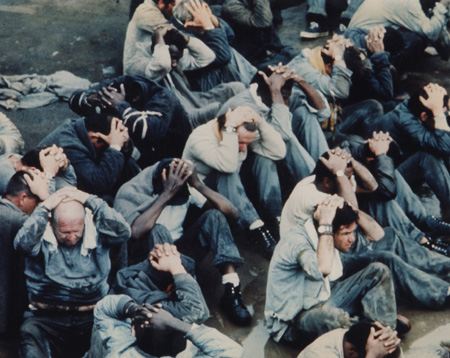
Si tratta di una canzone del 1972, inserita nell'album "Some Time In New York City", ispirata al massacro di prigionieri e ostaggi ad opera della polizia penitenziaria, avvenuto nel settembre del 1971 durante una rivolta nel penitenziario di Attica, New York. La rivolta dei prigionieri, causata dalle pessime condizioni carcerarie e dalla ferocia e dal razzismo dei secondini, venne repressa nel sangue e anche 11 ostaggi morirono sotto i colpi sparati dalle guardie.
wikipedia
Sempre nel 1972, anche il musicista funky-jazz afro-americano Archie Shepp dedicò alle vittime del massacro di Attica una sua celeberrima composizione, "Attica Blues"
wikipedia
Sempre nel 1972, anche il musicista funky-jazz afro-americano Archie Shepp dedicò alle vittime del massacro di Attica una sua celeberrima composizione, "Attica Blues"
What a waste of human power
(Continues)
(Continues)
Contributed by Alessandro 2006/3/6 - 14:16
Dove si va
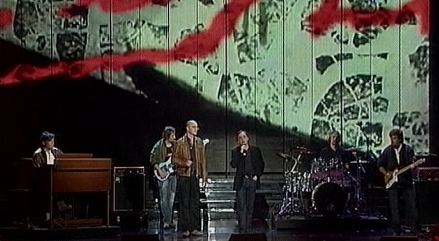
(C. Cattini, D. Sacco, M. Vecchi, G. Carletti, C. Cattini, G. Carletti, M. Vecchi)
2006
Con me o contro di me
Direttamente dal Festival di Sanremo 2006, che è stato vinto da una canzone più adatta allo Zecchino d'Oro.
Non che questa sia un capolavoro, ma a sentirla in mezzo alle altre poteva sembrarlo...
Al Festival è stata interpretata anche insieme a Roberto Vecchioni.
2006
Con me o contro di me
Direttamente dal Festival di Sanremo 2006, che è stato vinto da una canzone più adatta allo Zecchino d'Oro.
Non che questa sia un capolavoro, ma a sentirla in mezzo alle altre poteva sembrarlo...
Al Festival è stata interpretata anche insieme a Roberto Vecchioni.
Sai, scriverti una lettera
(Continues)
(Continues)
2006/3/6 - 09:46
Den okände soldaten

LA NEKONATA SOLDATO
(Continues)
(Continues)
Contributed by Riccardo Venturi & Nicola Ruggiero 2006/3/6 - 02:35
Bagdad

[2003]
Testo e musica di Kazik Staszewski
Lyrics and music by Kazik Staszewski
Tekst i muzika Kazika Staszweskiego
Da / From / Iz questa pagina/this page/tamtej strany
Il brano proviene dall'album "Spalam się" [1991], il primo album solista di Kazik Staszewski, il cantante del gruppo polacco Kult.
(Krzysiek Wrona)
Testo e musica di Kazik Staszewski
Lyrics and music by Kazik Staszewski
Tekst i muzika Kazika Staszweskiego
Da / From / Iz questa pagina/this page/tamtej strany
Il brano proviene dall'album "Spalam się" [1991], il primo album solista di Kazik Staszewski, il cantante del gruppo polacco Kult.
(Krzysiek Wrona)
Witaj żołnierzu, jestem twoim karabinem
(Continues)
(Continues)
Contributed by Riccardo Venturi 2006/3/5 - 13:14
Soldato

GRAZIE NOMADI...ho 18 anni e ormai sono 3 anni che vi seguo nei vostri concerti...siete semplicemente fantastici e profondi e la voce di Danilo mi fa emozionare e star bene appena la sento!!!E questa è una delle canzoni che più mi tocca il cuore...è splendida!Continuate così...SEMPRE MOMADI!!!
Silvia da Besnate 2006/3/5 - 11:09
Where Have all the Flowers Gone
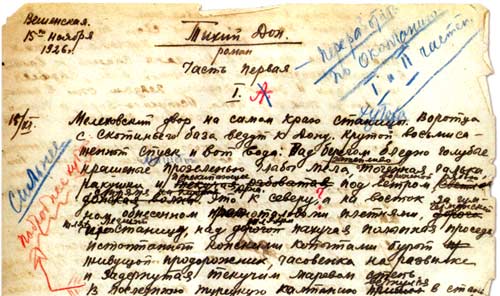
Alle radici della canzone (1): А где ж гуси? (Колода-дуда)
Back to the song's roots (1): А где ж гуси?
А где ж гуси? - La canzone popolare ucraina che ispirò Pete Seeger.
I seguenti sono i versi della canzone popolare ucraina (in realtà in lingua russa) riportata da Michajl Šolochov nel Placido Don [Тихий Дон] dai quali, per sua ammissione, Pete Seeger trasse ispirazione per scrivere Where Have All The Flowers Gone. Sono tratti dall' Edizione tedesca di Wikipedia, che li riporta nell'originale russo (con un errore che abbiamo corretto), in una traduzione tedesca ed in una resa parziale inglese. Abbiamo aggiunto una traslitterazione del testo russo in caratteri latini e la versione italiana.
А где ж гуси? - The Ukrainian folksong which inspired Pete Seeger.
The following are the verses from the Ukrainian folksong (in fact, they are in Russian) quoted by Michail Sholokhov in And Quiet... (Continues)
Back to the song's roots (1): А где ж гуси?
А где ж гуси? - La canzone popolare ucraina che ispirò Pete Seeger.
I seguenti sono i versi della canzone popolare ucraina (in realtà in lingua russa) riportata da Michajl Šolochov nel Placido Don [Тихий Дон] dai quali, per sua ammissione, Pete Seeger trasse ispirazione per scrivere Where Have All The Flowers Gone. Sono tratti dall' Edizione tedesca di Wikipedia, che li riporta nell'originale russo (con un errore che abbiamo corretto), in una traduzione tedesca ed in una resa parziale inglese. Abbiamo aggiunto una traslitterazione del testo russo in caratteri latini e la versione italiana.
А где ж гуси? - The Ukrainian folksong which inspired Pete Seeger.
The following are the verses from the Ukrainian folksong (in fact, they are in Russian) quoted by Michail Sholokhov in And Quiet... (Continues)
А где ж гуси?
(Continues)
(Continues)
Contributed by Riccardo Venturi 2006/3/5 - 01:39
Where Have all the Flowers Gone
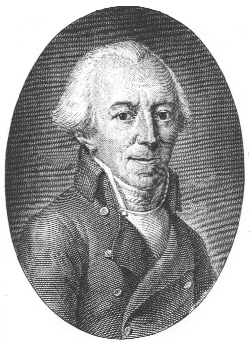
Alle radici della canzone (2): Sagt wo sind die Veilchen hin (Johann Georg Jacobi, 1782)
Back to the song's roots (2): Sagt wo sind die Veilchen hin (Johann Georg Jacobi, 1782)
La poesia di Johann Georg Jacobi (1782) che servì probabilmente da modello a Max Colpet per Sagt mir wo die Blumen sind. Le somiglianze sono in effetti assai evidenti. A sua volta, come detto, Jacobi si era servito di una Kettenlied popolare assai più antica; secondo alcuni (come ad esempio in questa discussione tratta dall'assai benemerito Mudcat Café, oppure secondo l'edizione tedesca di Wikipedia), potrebbe addirittura essere Zogen einst fünf wilde Schwäne.
Johann Georg Jacobi's Poem (1782) which Max Colpet probably used as a model for his German version, Sagt mir wo die Blumen sind. As a matter of fact, it shows a great resemblance with the poem. As stated, Jacobi himself had used a much older Kettenlied as a... (Continues)
Back to the song's roots (2): Sagt wo sind die Veilchen hin (Johann Georg Jacobi, 1782)
La poesia di Johann Georg Jacobi (1782) che servì probabilmente da modello a Max Colpet per Sagt mir wo die Blumen sind. Le somiglianze sono in effetti assai evidenti. A sua volta, come detto, Jacobi si era servito di una Kettenlied popolare assai più antica; secondo alcuni (come ad esempio in questa discussione tratta dall'assai benemerito Mudcat Café, oppure secondo l'edizione tedesca di Wikipedia), potrebbe addirittura essere Zogen einst fünf wilde Schwäne.
Johann Georg Jacobi's Poem (1782) which Max Colpet probably used as a model for his German version, Sagt mir wo die Blumen sind. As a matter of fact, it shows a great resemblance with the poem. As stated, Jacobi himself had used a much older Kettenlied as a... (Continues)
SAGT WO SIND DIE VEILCHEN HIN
(Continues)
(Continues)
Contributed by Riccardo Venturi 2006/3/5 - 00:33
Ayúdame Valentina

Danish version contributed by Mette, March 4th, 2006
Dansk oversættelse.
Dansk oversættelse.
JEG SPØRGER DIG, VALENTINA
(Continues)
(Continues)
Contributed by Mette 2006/3/4 - 22:59
Preghiera in settembre

Version française de Riccardo Venturi
4 marzo / 4 mars 2006
4 marzo / 4 mars 2006
PRIÈRE EN SEPTEMBRE
(Continues)
(Continues)
2006/3/4 - 14:12
Che cos'è
Da questa pagina di Giuseppe Cirigliano.
Che cos'è questa spina che punge le mani
(Continues)
(Continues)
Contributed by Riccardo Venturi 2006/3/3 - 23:12
Where Were You? (When The World Stopped Turning)

After a few more hit albums, Jackson again rocketed to fame with "Where Were You (When the World Stopped Turning)," a song about the September 11, 2001 terrorist attacks, which became a hit single and briefly propelled him into the mainstream spotlight; the song was even the subject of parody on the popular animated series South Park, in the episode A Ladder To Heaven.
Where were you when the world stop turning on that September day?
(Continues)
(Continues)
Contributed by Brittany Lynn Paral 2006/3/3 - 17:34
Song Itineraries:
September, 11: Attack on New York
A basic song page has been totally restyled, Where Have all the Flowers Gone. There's an exact reason for all this, but we won't say why for the moment.
In the meanwhile new translations have been included, into Kelartic, Portuguese, Romanian, Dutch, Finnish and Icelandic.
In the meanwhile new translations have been included, into Kelartic, Portuguese, Romanian, Dutch, Finnish and Icelandic.
Riccardo Venturi 2006/3/3 - 15:01
Where Have all the Flowers Gone

ISLANDESE / ICELANDIC / ISLANDAIS [1]
Ríkarður V. Albertsson
Versione islandese di Ríkarður V. Albertsson
Icelandic version by Ríkarður V. Albertsson
Version islandaise de Ríkarður V. Albertsson
03 / 03 / 2006
Þýtt hefur Rikharður V. Albertsson til áminningar á herjarlausu landi, Íslandi, sem aldrei hefur upplifað styrjöld.
Ríkarður V. Albertsson
Versione islandese di Ríkarður V. Albertsson
Icelandic version by Ríkarður V. Albertsson
Version islandaise de Ríkarður V. Albertsson
03 / 03 / 2006
Þýtt hefur Rikharður V. Albertsson til áminningar á herjarlausu landi, Íslandi, sem aldrei hefur upplifað styrjöld.
HVAR ERU SMÁBLÓMIN?
(Continues)
(Continues)
Contributed by CCG/AWS Staff 2006/3/3 - 14:35
Where Have all the Flowers Gone
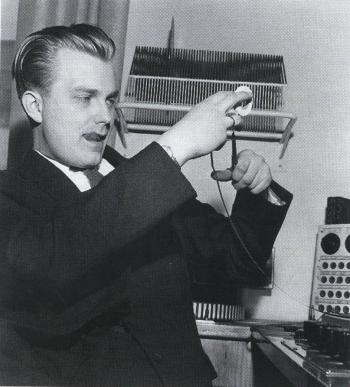
FINLANDESE/FINNISH/FINNOIS
Sauvo Puhtila (Veikko Vallas-Saukki) / Kukonpojat - Ritva Oksanen - Ossi Ahlapuro
La versione finlandese di Sauvo Puhtila [1965] interpretata dai Kukonpojat, da Ritva Oksanen e da Ossi Ahlapuro
[1970]
Finnish version by Sauvo Puhtila [1965], performed by Kukonpojat, Ritva Oksanen and Ossi Ahlapuro
[1970]
La version finnoise de Sauvo Puhtila [1965] interprétée par Kukonpojat, Ritva Oksanen et Ossi Ahlapuro
[1970]
Sauvo Puhtila, nato nel 1928 e morto nel 2014, è stato una delle figure più popolari della radio finlandese: autore di canzoni, traduttore, presentatore e quant'altro, lo si potrebbe un po' paragonare al nostro Corrado Mantoni (ovvero Corrado, tout court). Una sua caratteristica era quella di scrivere e comporre usando una pletora di pseudonimi: quello più celebre è stato forse Saukki (diminutivo di Sauvo), ma era anche Veikko Vallas, Jim, Merja, S. Puustinen,... (Continues)
Sauvo Puhtila (Veikko Vallas-Saukki) / Kukonpojat - Ritva Oksanen - Ossi Ahlapuro
La versione finlandese di Sauvo Puhtila [1965] interpretata dai Kukonpojat, da Ritva Oksanen e da Ossi Ahlapuro
[1970]
Finnish version by Sauvo Puhtila [1965], performed by Kukonpojat, Ritva Oksanen and Ossi Ahlapuro
[1970]
La version finnoise de Sauvo Puhtila [1965] interprétée par Kukonpojat, Ritva Oksanen et Ossi Ahlapuro
[1970]
Sauvo Puhtila, nato nel 1928 e morto nel 2014, è stato una delle figure più popolari della radio finlandese: autore di canzoni, traduttore, presentatore e quant'altro, lo si potrebbe un po' paragonare al nostro Corrado Mantoni (ovvero Corrado, tout court). Una sua caratteristica era quella di scrivere e comporre usando una pletora di pseudonimi: quello più celebre è stato forse Saukki (diminutivo di Sauvo), ma era anche Veikko Vallas, Jim, Merja, S. Puustinen,... (Continues)
MINNE KUKAT KADONNEET
(Continues)
(Continues)
Contributed by Riccardo Venturi 2006/3/3 - 01:22
Where Have all the Flowers Gone

NEERLANDESE / DUTCH / NÉERLANDAIS [1]
Annie M.G. Schmidt / Conny Vandenbos
La versione neerlandese di Annie M.G. Schmidt eseguita da Conny Vandenbos [1970]
Anna Maria Geertruida "Annie" Schmidt (Kapelle, 20 maggio 1911 – Amsterdam, 21 maggio 1995) è stata una scrittrice olandese. La sua produzione letteraria spazia dalla poesia alle canzoni, dalle opere teatrali a quelle per radio e televisione, ai musical, anche se è conosciuta principalmente per i suoi libri per ragazzi: nel 1988 vinse il Premio Hans Christian Andersen con la serie Jip e Janneke. È stata definita "la più versatile e dotata autrice di libri per bambini nei Paesi Bassi", la "madre della canzone teatrale olandese" e la "regina della letteratura per bambini olandese", è stata lodata per il suo "delizioso linguaggio tipicamente olandese" ed è considerata una delle più grandi scrittrici olandesi. Nel 2007, un gruppo di... (Continues)
Annie M.G. Schmidt / Conny Vandenbos
La versione neerlandese di Annie M.G. Schmidt eseguita da Conny Vandenbos [1970]
Anna Maria Geertruida "Annie" Schmidt (Kapelle, 20 maggio 1911 – Amsterdam, 21 maggio 1995) è stata una scrittrice olandese. La sua produzione letteraria spazia dalla poesia alle canzoni, dalle opere teatrali a quelle per radio e televisione, ai musical, anche se è conosciuta principalmente per i suoi libri per ragazzi: nel 1988 vinse il Premio Hans Christian Andersen con la serie Jip e Janneke. È stata definita "la più versatile e dotata autrice di libri per bambini nei Paesi Bassi", la "madre della canzone teatrale olandese" e la "regina della letteratura per bambini olandese", è stata lodata per il suo "delizioso linguaggio tipicamente olandese" ed è considerata una delle più grandi scrittrici olandesi. Nel 2007, un gruppo di... (Continues)
WAAR ZIJN AL DE BLOEMEN TOCH
(Continues)
(Continues)
Contributed by Riccardo Venturi 2006/3/3 - 00:14
Where Have all the Flowers Gone

ROMENO/ROMANIAN/ROUMAIN
Alexandru Constantinescu
Alexandru Constantinescu
Versione romena di Alexandru Constantinescu.
Romanian version by Alexandru Constantinescu.
Version roumaine d'Alexandru Constantinescu.
Romanian version by Alexandru Constantinescu.
Version roumaine d'Alexandru Constantinescu.
UNDE AU DISPĂRUT TOATE FLORILE
(Continues)
(Continues)
Contributed by Riccardo Venturi 2006/3/2 - 20:51
Where Have all the Flowers Gone
PORTOGHESE /PORTUGUESE / PORTUGAIS [1]
Jarmila Ferreira Martins
Jarmila Ferreira Martins
Versione portoghese di Jarmila Ferreira Martins
ricevuta il 2 marzo 2006
Portuguese version by Jarmila Ferreira Martins
received on March 2nd, 2006
Version portugaise de Jarmila Ferreira Martins
reçue le 2 mars 2006
La seguente versione è stata richiesta espressamente alla mia collega ed amica brasiliana Jarmila Ferreira Martins, essendo stato impossibile reperirne una in rete, d'autore o meno. Jarmila ne ha fatto comunque una stupenda versione pienamente cantabile.
The following Portuguese version has been prepared on purpose by my Brazilian colleague and friend Jarmila Ferreira Martins, as it proved impossible to find even a single translation on the Web, by a known author or by the occasional translator. Yet, Jarmila has made a splendid and fully singable translation.
ricevuta il 2 marzo 2006
Portuguese version by Jarmila Ferreira Martins
received on March 2nd, 2006
Version portugaise de Jarmila Ferreira Martins
reçue le 2 mars 2006
La seguente versione è stata richiesta espressamente alla mia collega ed amica brasiliana Jarmila Ferreira Martins, essendo stato impossibile reperirne una in rete, d'autore o meno. Jarmila ne ha fatto comunque una stupenda versione pienamente cantabile.
The following Portuguese version has been prepared on purpose by my Brazilian colleague and friend Jarmila Ferreira Martins, as it proved impossible to find even a single translation on the Web, by a known author or by the occasional translator. Yet, Jarmila has made a splendid and fully singable translation.
PARA ONDE FORAM TODAS AS FLORES
(Continues)
(Continues)
Contributed by Riccardo Venturi 2006/3/2 - 20:26
Where Have all the Flowers Gone
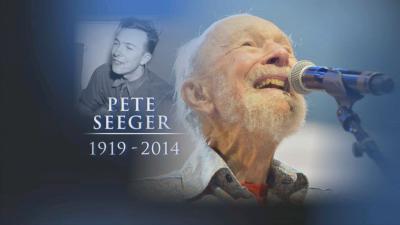
KELARTICO/KELARTIC/KELARTIEN
Risyart Văndtūar
La versione in Kelartico, la lingua personale di Riccardo Venturi
Kelartic version. K. is Riccardo Venturi's personal language.
Version kélartienne, la langue personnelle de Riccardo Venturi
Risyart Văndtūar
La versione in Kelartico, la lingua personale di Riccardo Venturi
Kelartic version. K. is Riccardo Venturi's personal language.
Version kélartienne, la langue personnelle de Riccardo Venturi
ANŪ BLŌNĀI HOĀ GEGĪ
(Continues)
(Continues)
2006/3/2 - 20:04
Where Have all the Flowers Gone

GREC / GREEK / GREC [1]
La trascrizione della versione greca in caratteri latini (versione semifonetica)
Romanized (semi-phonetic) Greek version.
Transcription de la version grecque en lettres latines (version semi-phonétique).
Romanized (semi-phonetic) Greek version.
Transcription de la version grecque en lettres latines (version semi-phonétique).
PES MOU POU’NE TA LOULOUDIA
(Continues)
(Continues)
2006/3/2 - 18:27
Anima Mundi [A Giordano Bruno]
![Anima Mundi [A Giordano Bruno]](img/thumb/c3084_130x140.jpeg?1342389593)
Deutsche Fassung von Riccardo Venturi
28 febbraio / 28. Februar 2006
28 febbraio / 28. Februar 2006
SEELE DER WELT
(Continues)
(Continues)
2006/2/28 - 22:30
Iraq
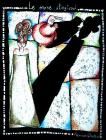
La canzone per me è davvero intensa, coinvolgente. scritta in tempi non sospetti. l'autore, però è F. Camattini.
grazie per il bel sito e per averla inviata-inserita.
grazie per il bel sito e per averla inviata-inserita.
sara chierici 2006/2/28 - 20:48
Mistica pietà

Deutsche Fassung von Riccardo Venturi
28 febbraio / 28. Februar 2006
28 febbraio / 28. Februar 2006
MYSTISCHES MITLEID
(Continues)
(Continues)
2006/2/28 - 18:01
Cannoni del Sagro

Deutsche Fassung von Riccardo Venturi
28 febbraio / 28. Februar 2006
28 febbraio / 28. Februar 2006
KANONEN VON SAGRO
(Continues)
(Continues)
2006/2/28 - 17:09
Affare Dreyfus
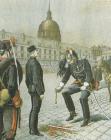
Deutsche Fassung von Riccardo Venturi
28 febbraio/28. Februar 2006
28 febbraio/28. Februar 2006
DIE DREYFUS-AFFÄRE
(Continues)
(Continues)
2006/2/28 - 10:20
Preghiera in settembre

Deutsche Fassung von Riccardo Venturi
28 febbraio / 28. Februar 2006
28 febbraio / 28. Februar 2006
GEBET IN SEPTEMBER
(Continues)
(Continues)
2006/2/28 - 09:27
Io sono
Testo e musica di Roberto Leoncino
Sono lo schiavo, sono il servo umiliato e offeso,
(Continues)
(Continues)
Contributed by adriana 2006/2/27 - 13:26
I padroni del mondo
Testo e musica di Roberto Leoncino
Ho dodici anni e vivo, si fa per dire, a Calcutta
(Continues)
(Continues)
Contributed by adriana 2006/2/27 - 13:16
Il fumo di Genova
Testo e musica di Roberto Leoncino
Dentro il fumo di Genova bruciano le parole
(Continues)
(Continues)
Contributed by adriana 2006/2/27 - 12:53
Song Itineraries:
Genoa - G8, police repression, Carlo Giuliani
Veisuu
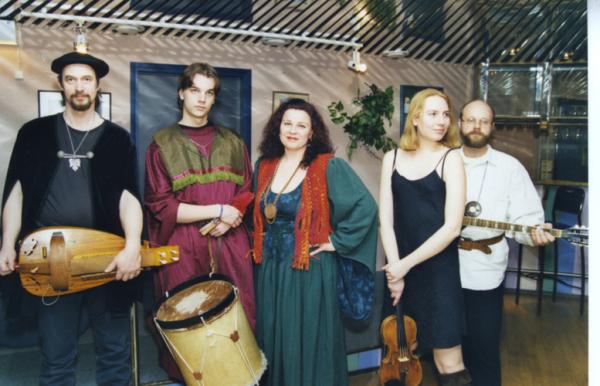
[2004]
Dall'album di canzoni contro la guerra "Sota kirottu!"
From the Antiwar songs album "Sota kirottu!"
[In attesa di reperire un traduttore]
Testo / Lyrics / Sanoja: Kaisa Saari
Musica / Music / Säv.: Kaisa Saari
Il testo è ripreso dal Nuovo sito ufficiale dei Tarujen Saari
Lyrics available at Tarujen Saari's New Official Website
Dall'album di canzoni contro la guerra "Sota kirottu!"
From the Antiwar songs album "Sota kirottu!"
[In attesa di reperire un traduttore]
Testo / Lyrics / Sanoja: Kaisa Saari
Musica / Music / Säv.: Kaisa Saari
Il testo è ripreso dal Nuovo sito ufficiale dei Tarujen Saari
Lyrics available at Tarujen Saari's New Official Website
Tuijotan Kiesusta lehterin takaa
(Continues)
(Continues)
Contributed by Riccardo Venturi 2006/2/27 - 00:32
Huovi!
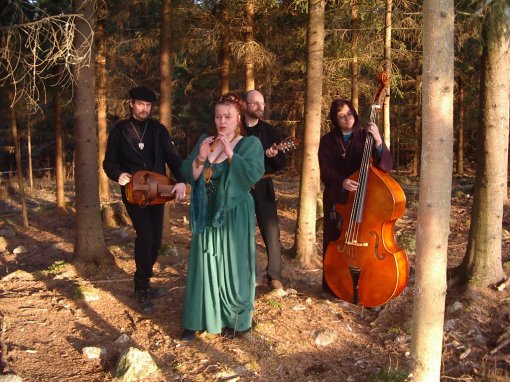
[2004]
Dall'album di canzoni contro la guerra "Sota kirottu!"
From the Antiwar songs album "Sota kirottu!"
Testo / Lyrics / Sanoja: Kaisa Saari
Musica / Music / Säv.: Vesa Vigman
Testo ripreso dal Nuovo sito dei Tarujen Saari
Lyrics available at Tarujen Saari's New Official Website
La canzone è cantata in canto (A) e controcanto (B).
The song is performed in canto (A) and controcanto (B).
Dall'album di canzoni contro la guerra "Sota kirottu!"
From the Antiwar songs album "Sota kirottu!"
Testo / Lyrics / Sanoja: Kaisa Saari
Musica / Music / Säv.: Vesa Vigman
Testo ripreso dal Nuovo sito dei Tarujen Saari
Lyrics available at Tarujen Saari's New Official Website
La canzone è cantata in canto (A) e controcanto (B).
The song is performed in canto (A) and controcanto (B).
- intro -
(Continues)
(Continues)
Contributed by Riccardo Venturi 2006/2/27 - 00:28
Monte Pasubio
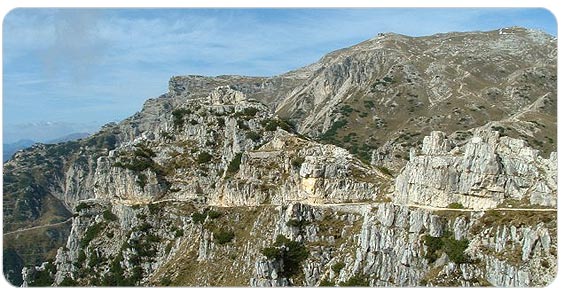
Canto alpino della prima guerra mondiale; il testo è ripreso da questa pagina.
Sulla Battaglia del Monte Pasubio si veda questa pagina.
Il canto appare inserito nel primo CD del coro dei Crodaioli di Arzignano (VI) (forse all'epoca era un LP) datato 1968, Voci della montagna vol. I.
Sulla Battaglia del Monte Pasubio si veda questa pagina.
Il canto appare inserito nel primo CD del coro dei Crodaioli di Arzignano (VI) (forse all'epoca era un LP) datato 1968, Voci della montagna vol. I.
Sulla strada del Monte Pasubio
(Continues)
(Continues)
Contributed by Riccardo Venturi 2006/2/26 - 23:17
Song Itineraries:
World War I (1914-1918)
Naja de merda

grazie per l'aggiornamento
magari correggete la mail...
r.percy@tiscali.it
ciao a presto roberto
magari correggete la mail...
r.percy@tiscali.it
ciao a presto roberto
roberto 2006/2/25 - 21:13
Arthur Plantagenest

A Middle English version by Riccardo Venturi.
La lingua usata potrebbe essere medio inglese dell'epoca, pur con qualche anacronismo.
La lingua usata potrebbe essere medio inglese dell'epoca, pur con qualche anacronismo.
ARÞUR PLANTAGENEST
(Continues)
(Continues)
2006/2/24 - 19:17
Pogledaj dom svoj, anđele
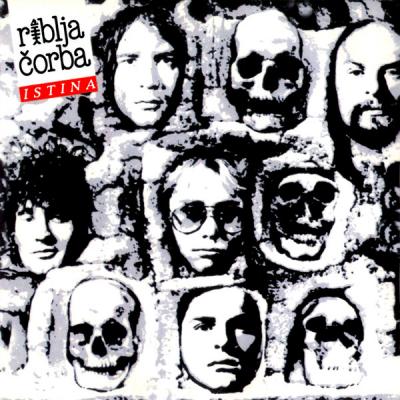
Pogledaj dom svoj, anđele,
(Continues)
(Continues)
Contributed by Riccardo Venturi 2006/2/24 - 14:49
Uncle John
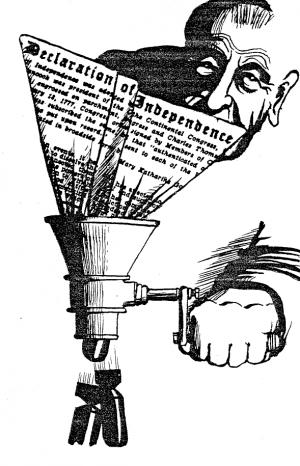
Dall'album "One Nation Underground" (1967), il primo dei nove lavori che la band di Tom Rapp realizzò fino al 1972.
Pubblicata anche su Broadside 89
"Il singhiozzare delle vedove,
il piangere dei bambini,
le grida di chi sta morendo
dicono che stai mentendo, Zio George W.(*)
(*) Licenza poetica dell'autore del post.
Pubblicata anche su Broadside 89
"Il singhiozzare delle vedove,
il piangere dei bambini,
le grida di chi sta morendo
dicono che stai mentendo, Zio George W.(*)
(*) Licenza poetica dell'autore del post.
The wind winds the platform
(Continues)
(Continues)
Contributed by Alessandro 2006/2/23 - 18:13
Song Itineraries:
War in Viet Nam as seen from the U.S.
Auschwitz, o Canzone del bambino nel vento

ESPERANTO [2]
Versione cantabile in esperanto di Nicola Ruggiero
Kantebla esperanta traduko de Nicola Ruggiero
A singable version in Esperanto by Nicola Ruggiero
Version chantable en Esperanto par Nicola Ruggiero
Nicola Ruggiero esperantonkielinen taiteellinen versio
23-02-2006
Libertaciturno, Isernia 2010.
Versione cantabile in esperanto di Nicola Ruggiero
Kantebla esperanta traduko de Nicola Ruggiero
A singable version in Esperanto by Nicola Ruggiero
Version chantable en Esperanto par Nicola Ruggiero
Nicola Ruggiero esperantonkielinen taiteellinen versio
23-02-2006
Libertaciturno, Isernia 2010.
AUSCHWITZ
(Continues)
(Continues)
Contributed by Nicola Ruggiero 2006/2/23 - 01:13
2001 Genova
Dall'album "C'è qualcosa che non va"
2001: Genova nel mondo.
(Continues)
(Continues)
Contributed by adriana 2006/2/22 - 21:12
Song Itineraries:
Genoa - G8, police repression, Carlo Giuliani
Pra não dizer que não falei das flores [Caminhando]
![Pra não dizer que não falei das flores [Caminhando]](img/upl/vandre.jpg)
[1968]
Letra e música / Testo e musica / Lyrics and music / Paroles et musique / Sanat ja sävel: Geraldo Vandré
Classificatasi seconda al Festival di Musica Popolare Brasiliana del 1968, vinto da Sabiá di Chico Barque. La canzone, atipica perché scritta su due soli accordi è una chiamata a raccolta per l'opposizione al regime militare e incontra un largo successo venendo però prontamente censurata. Subito dopo Vandré viene arrestato e di lui per un certo periodo non si sa più nulla. Si parla di torture e si profilano anche scenari più cupi.
Con grandissimo coraggio il 21 dicembre Sergio Endrigo partecipa a Canzonissima presenta una traduzione della canzone intitolata Camminando e cantando, dedicandola a "Geraldo Vandré in qualsiasi posto ora si trovi". Vandré viene rilasciato e sparisce dalle scene. Va in Cile poi in Francia e torna in Brasile nel 1973.
introduzione in parte tratta... (Continues)
Letra e música / Testo e musica / Lyrics and music / Paroles et musique / Sanat ja sävel: Geraldo Vandré
Classificatasi seconda al Festival di Musica Popolare Brasiliana del 1968, vinto da Sabiá di Chico Barque. La canzone, atipica perché scritta su due soli accordi è una chiamata a raccolta per l'opposizione al regime militare e incontra un largo successo venendo però prontamente censurata. Subito dopo Vandré viene arrestato e di lui per un certo periodo non si sa più nulla. Si parla di torture e si profilano anche scenari più cupi.
Con grandissimo coraggio il 21 dicembre Sergio Endrigo partecipa a Canzonissima presenta una traduzione della canzone intitolata Camminando e cantando, dedicandola a "Geraldo Vandré in qualsiasi posto ora si trovi". Vandré viene rilasciato e sparisce dalle scene. Va in Cile poi in Francia e torna in Brasile nel 1973.
introduzione in parte tratta... (Continues)
Caminhando e cantando e seguindo a canção
(Continues)
(Continues)
Contributed by adriana 2006/2/22 - 14:37
Henry K

2004
Una stringata ma efficace biografia in versi di Henry Kissinger, "master of war".
Una stringata ma efficace biografia in versi di Henry Kissinger, "master of war".
I searched for the soul of young Henry K
(Continues)
(Continues)
Contributed by Alessandro 2006/2/22 - 13:46
No Bravery

Non sono un esperto in traduzioni, ma questo è il risultato... giudicate voi.
NESSUN CORAGGIO
(Continues)
(Continues)
Contributed by Alessandro 2006/2/22 - 11:57
Addio a Lugano

ESPERANTO
Versione in esperanto di Gianfranco Molle
da questa pagina
Albumo: Horo da opozicio
Jaro: 1979
Aĉetebla ĉe
Versione in esperanto di Gianfranco Molle
da questa pagina
Albumo: Horo da opozicio
Jaro: 1979
Aĉetebla ĉe
AL VI, LUGAN', ADIAŬ
(Continues)
(Continues)
Contributed by Nicola Ruggiero 2006/2/22 - 10:39
Where Have all the Flowers Gone

ESPERANTO
Wouter Pilger / Jacques Yvart
Wouter Pilger / Jacques Yvart
Tradukis Wouter Pilger (1942-2006)
Tradotta da Wouter Pilger (1942-2006)
Translated by Wouter Pilger (1942-2006)
Traduction de Wouter Pilger (1942-2006)
Da questa pagina / From this page / D'après cette page
La canzone è stata interpretata da Jacques Yvart.
The song has been performed by Jacques Yvart.
La chanson a été interprétée par Jacques Yvart.
Tradotta da Wouter Pilger (1942-2006)
Translated by Wouter Pilger (1942-2006)
Traduction de Wouter Pilger (1942-2006)
Da questa pagina / From this page / D'après cette page
La canzone è stata interpretata da Jacques Yvart.
The song has been performed by Jacques Yvart.
La chanson a été interprétée par Jacques Yvart.
ĈIUJ FLOROJ ESTAS FOR?
(Continues)
(Continues)
Contributed by Nicola Ruggiero 2006/2/22 - 10:35
Guantanamera
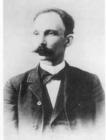
ESPERANTO / ESPERANTO
Versione in esperanto, da questa pagina
Esperanto version available at this page
Versione in esperanto, da questa pagina
Esperanto version available at this page
GUANTANAMERA
(Continues)
(Continues)
Contributed by Nicola Ruggiero 2006/2/22 - 10:30
×
![]()



![Hōyla hōyla [Em gedărk to hadōnāi nă to plen]](img/upl/parata_2giugno.jpg)
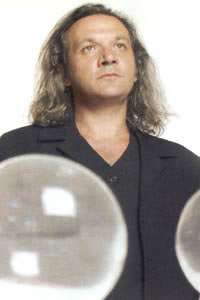
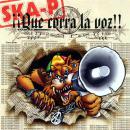

![Chacun de vous est concerné [incl. <em>Canzone del maggio</em> di Fabrizio De André]](img/upl/dominique.jpg)
![Chacun de vous est concerné [incl. <em>Canzone del maggio</em> di Fabrizio De André]](img/upl/perquantovoi.jpg)

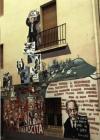


Lyrics available at this page